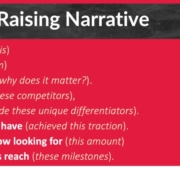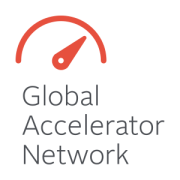Preparing for Your First Investor Meeting: A Tale of Two Founders
/in Financing, Startup Tools/by StartupYardBeyond the Headline: Why High Pre-Seed Valuations Can Be a Risky Bet for Founders
/in Financing, Life at an Accelerator, Startup Tools/by StartupYard9 Things Not to Do When Talking to Investors
/in Financing, Starting a Business, Startup Tools, Startups/by StartupYardSteal This for the Next Time You Speak to an Investor
/in Financing, Life at an Accelerator, Startup Tools/by StartupYardNo, These Decks Did Not Raise Billions of Dollars
/in Financing, Startup Tools, Startups, StartupYard News/by StartupYard10 StartupYard Companies Raised €2.2M in 2017
/in Financing, Life at an Accelerator, Starting a Business, StartupYard News/by StartupYard2017 was a good year at StartupYard. Not just financially , but also because we saw a number of our Alumni and recent graduates accomplish amazing things in the past year. Of course, 10 companies raising over €2 million total makes us very happy.
Still, the money is less important to us than what the money says, which is that these companies are doing good things that investors believe in, and that therefore we’ve done our job well.
10 Companies, €2.2 Million
More StartupYard alumni raised funding in 2017 than in any previous year. 10 Alumni and startups in the program raised funds in rounds worth between €35k and €750k. Many of these investments we’ve announced, but others have not been made public yet.
We’re also happy to report that there are additional deals in the pipeline, and we will hopefully be able to announce those very soon. We hope that 2018 will follow 2017 as another record year for fundraising.
How Does StartupYard Help Startups Fundraise?
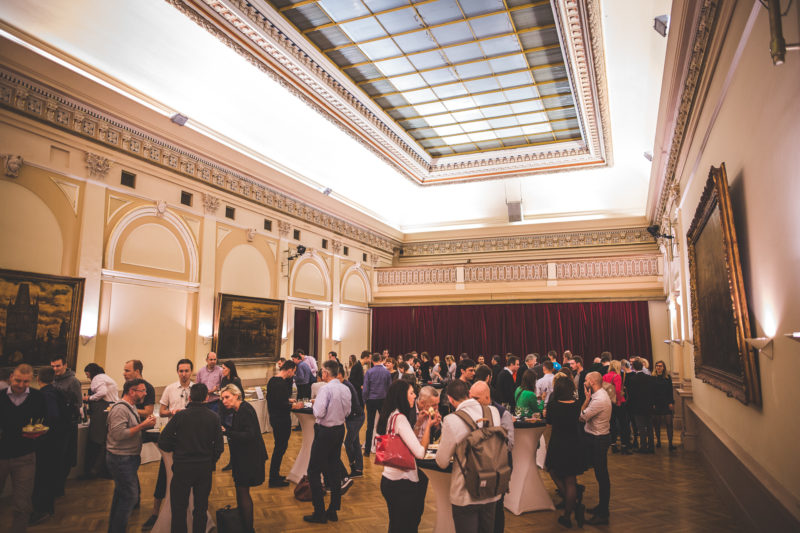
The Network: Aside from the obvious, which is that we begin by investing in Startups that go through our program, every deal that one of our alumni have closed in the past year has been with the help of the StartupYard network.
Through mentoring, and especially Demo Day and the following Investor Week, our startups meet and get a chance to pitch a huge number of likely investors, including business angels, VCs, and even banks and large corporate investors. In every case in the past year, our startups have been able to raise money because of contacts made during the program. In most cases, the startups raised directly from StartupYard mentors or existing investors.
The Reputation: As with any long-running accelerator program with a decent track record, we have a smart group of investors who will pay close attention to any startup we work with. Being around for many years, and having made many right calls in the past, we are trusted by investors to offer clear, honest and helpful feedback about our alumni.
That doesn’t mean investors do whatever we say. But they do listen.
Our investor network know that we do not shop investments that we don’t believe in ourselves. Credibility in the investment community matters very much. You don’t always have to be right, but you have to be informed, open, and honest. I can safely say that every company I’ve worked with in the past 4 years at StartupYard that deserved an investment, got it. We find a way to make it happen.
The Program: Just as important as having the right network to do your initial fundraising, you have to be an investable company to begin with. One of the things we look for in startups we select is that they are usually almost investible, or we see that with some hard work, they will be investable sooner rather than later.
That naturally incurs a big risk for us, but it also helps define our mission- not to find “the best” most shiney startups out there, but to find the ones with the most real potential. One of the metrics we use to determine our success at picking “go over show,” is how well our startups do after our program at raising smart money (that is, from investors who know what they’re doing).
The Backup: Another quiet but important part of StartupYard’s role with alumni companies is to provide “backup” in negotiations with future investors.
Having an existing investor on your side of the table is an important practical and psychological advantage in investment negotiations. For one thing, an existing, experienced investor helps ensure that new investors behave themselves, and make fair offers on fair terms. Knowing an experienced partner is behind the startup encourages fair play and discourages game playing.
For another, StartupYard has the network and platform to expose bad actors, and to make sure our startups don’t deal with them in the first place. We have the power, in extreme circumstances, to block investments in our most recent alumni. This should be seen not as a blocker for investment, but as a negotiating advantage for startups, who can always fall back on us to block or negotiate terms that are unfavorable to the founder, on their behalf.
As we say, we can be “the bad guy,” with future investors when we are needed to be.
Listening to What an Investment Actually Says

Many founders who apply to StartupYard, and many who join us and go on to raise further investment, begin with some wrong conceptions of what raising investment is all about.
Of course, it’s the money they’re usually thinking about. But this is only part of the picture. If you need money, there are lots of places to look for it. Not all of those places are good, and not all of them are ultimately worth your effort or the risk you take in going there.
I used to joke with our founders that if you got into this business just to make money, you should just sell drugs instead. It’s almost true.
If there is good money and not so good money (clean or dirty, smart or dumb) how do you decide whom to take money from, or whom to ask for it?
Try approaching the question from the opposite tack: not “how do I get this money,” but instead: “what will it say if someone gives me this money?”
It should say that the investor believes in the upside potential of what you’re doing. Any investor in an early stage company should be nowhere near defining the real market value of the investment, because that value hasn’t been fully explored or proven yet.
The investment has to say what the investor can reasonably believe. Here are some things an early stage investment should say about what the investor believes:
- The company will be worth more in the future
- The founders are honorable and trustworthy
- The product is good and there is a market for it
- The founders will work hard, and pivot if necessary
- The founders will eventually sell or realize a profit
- Failure is possible, and ultimately acceptable
Maybe one or two of those points surprise you, but I hope not. We should not expect early investors to be total true-believers in what a startup is doing, but we should be able to answer all these questions before accepting an early investment from someone.
We should also not expect investors to be unemotional, or completely calculating in their early-stage investments. A true opportunist is a dangerous friend to have.
Picking the right investor is not just about sleeping well at night, though that’s part of it. It’s also about making sure that you actually have the clarity of vision and the confidence you will need to do what the investor believes you can do. Convincing someone of something is a lot harder than telling it to yourself.
One of the best ways to get someone to believe all the things I’ve mentioned is to really believe them yourself. The best way to believe those things is to make them true.
Make Yourself Investable
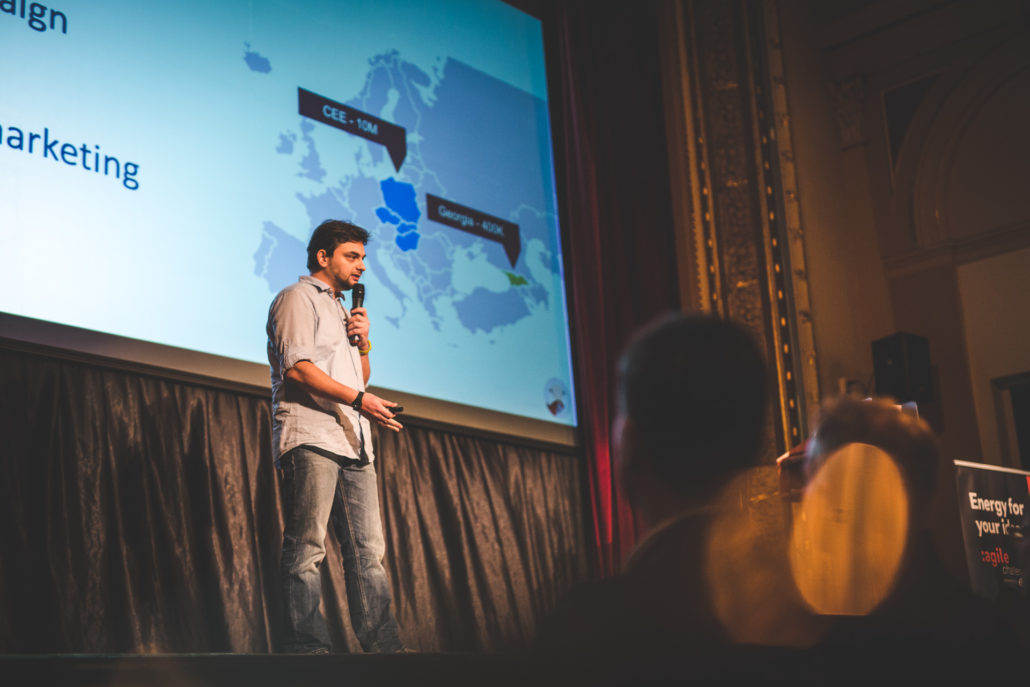
As we’ve seen, becoming an investable company is about more than having a great idea, or the energy and determination to make it happen. It’s also about the network you have, and the choices you make early on.
If you think you have a tech idea with great potential, consider working with an accelerator like StartupYard to grow your immediate network, and turn the idea into a business investors and customers can really trust.
Finding investors, just like finding any business partner, is about knowing what exactly you need, and what to reasonably expect. StartupYard helps you figure those things out.
StartupYard is currently accepting applications for Batch 9.
We’re looking for startup founders in Crypto, AI, IoT, and AR/VR!
Get started applying to StartupYard Batch 9. Applications close January 31st, 2018.
ICOs: 2017’s Biggest, Most Misunderstood Trend in Tech
/in Financing, Startup Tools/by StartupYardIt seems like the tech investment market hasn’t been this excited about anything since 1999. The ICO, or “Initial Coin Offering,” is on the lips of every investor, and floats to the top of every startup discussion around fundraising and new business models.
Depending on who you ask, it’s a revolutionary shift in the investment paradigm that will help tech companies and investors alike become wildly rich, or it’s a scary bubble-creating, fraud enabling monster the likes of which hasn’t been seen since the dot-com bubble.
So what’s going on? What’s an ICO? What do you need to know about them? Why should I be wary or excited? This post will jump into the circumstances that created the phenomenon of ICOs, and try to dispel or confirm some of the most important common beliefs about them.
First, a bit of history:
First There Was Blockchain
In the distant technological past, around 2009, an idea emerged from a mysterious coder with the pseudonym of Satoshi Nakamoto. In a now-legendary whitepaper, he produced a theoretical model for a new kind of digital currency: what he called Bitcoin.
Without getting too deep into the technology, the key to Nakamoto’s innovation was the idea of a distributed digital currency that relied on a network of computers to process and authenticate transactions for its users. This network would create many copies of a “blockchain ledger,” and would copy transactions written to the ledger based on consensus with the network.
The ledger would contain many “coins,” or unique pieces of code that could be “traded” from one user to another only with the use of a private key. Over time, the system itself was designed to create more coins as a reward for those who processed transactions- a process called “mining.”
In this system, transactions would be theoretically tamper-proof. The system would keep what amounts to a never-ending record of everything it does, impossible for one person to alter alone.
Though Bitcoin’s exact origins and Nakamoto himself are mysterious, what is true today is that millions of people around the world have traded bitcoins, and used them for a variety of purposes, including making payments, transferring money abroad, and in some cases, illegal activities such as extortion, money laundering, and black market sales. There is such ongoing demand for bitcoins, that they have been valued by some exchanges at up to $5000 dollars recently.
The popularity of Bitcoin has spawned many follow-ups, including and especially Ethereum, which has presented a number of technical advancements to solve limitations in the original Bitcoin technology, particularly Bitcoin’s lack of speed and extensibility.
Today, the Ethereum blockchain functions as a platform upon which applications that need a distributed blockchain can be built. The Ethereum coin called “ether,” can be “spent” as a way of leveraging the network on which it runs to accomplish new tasks in a secure way.
Blockchain and ICOs
While Bitcoin popularized shared ledgers, new platforms like Ethereum promise to put that technology to much broader use, such as in authenticating contracts, securing communications, and enabling new forms of crowdfunding. Proponents see Ethereum and similar technologies as a way to decentralize many functions of the web, and eventually the whole economy.
TechCrunch has a good introductory article on some of those ideas. I suggest you read that as well.
An ICO is one of those new uses of a shared ledger. As simply as possible, it is the process of offering a new set of coins for purchase, either for cash, or more commonly, in exchange for cryptocurrencies that the seller of the coin can then exchange for cash, or something else. The coins being sold by the company raising the IO should be tied to some external financial instrument or physical asset, such as a loan, a share of common stock, a security, or in some cases, “credit” towards the use of the products a company offers.
You may recognize this kind of transaction as essentially similar to the sale of a security or a debt. The main difference is that the sale is accomplished using a blockchain ledger, and the “coin” sits in place of a typical security instrument, such as a bond, or a note.
Thus, an ICO could be used to facilitate many existing business activities. It could be used to enable a group of lenders to pool their money, or it could be used by a startup to sell equity in itself. An ICO can also be used by an existing company to offer a way of buying its services (the same way mobile gaming companies sell tokens, gems or other items to their players to make in-game purchases).
The advantages of employing blockchain technology in these circumstances are the same as ever: increased security, transparency, and auditability. In short, ICOs can potentially offer a better or fairer way of doing things people mostly already do.
So Why is this So Crazy Popular?
Because it’s so easy to setup, and easy to use. The wild popularity of ICOs in the past 6 months or so is largely driven by the general investor hype around cryptocurrencies. As the prevalence of shared ledgers grows, it becomes ever easier to leverage them for novel purposes like an ICO.
And that cutting-edgness can make the ICO market a bit frothy and potentially bubble prone. People who have invested in cryptocurrencies, and more importantly those who missed the huge easy gains that early Bitcoin and Ethereum investors made, now are seeking more opportunities to make returns of a similar scope. At least a part of this is mania and greed, as evidenced by the wacky valuations and amounts raised in some ICOs.
On the other hand, ICOs carry undeniably attractive advantages. They can be bought into from anywhere, by anyone, and are instantaneous- a powerful antidote to the slow and restricted nature of traditional investments and bank transactions for end-consumers. In a sense, an ICO lets individuals do what big investment banks have been able to do for decades: to be the first movers in new and exciting markets.
What an ICO is Not
Of course, that freedom and opportunity comes with its own cost.
Currently ICOs are mostly considered to be unregulated, and have thus been characterized as dangerous, risky for investors, and legally questionable by experts. Certainly those ICOs which mimic the characteristics of a classical IPO have been among the most concerning activity in the ICO market, and were the primary motivator for both the Chinese and US governments to intervene in the market recently.
An ICO can allow a company to bypass institutional investors who might normally help to diversify risk for consumers, or ensure that an investment is legally structured in a way that protects investors. In an ICO however, no central mediator such as a stock exchange or investment bank exists, and thus, in some cases, due diligence on behalf of investors is poor or non-existent.
Whatever the legal or ethical dangers, ICOs have quickly ballooned in value to what is estimated to be billions of U.S. dollars in the past year. Companies have used ICOs to raise eye-popping amounts of money, sometimes with little reliable information about where that money is going, and often with little legal protections in place for buyers.
ICOs have also been the tools of purely criminal enterprises, with a fraudster reportedly caught attempting to move $350 million of ICO investments offshore from India, after a fake ICO for a company calling itself OneCoin.
Massive speculation in cryptocurrencies has fueled plenty of fraud and abuse from bad actors looking to make easy money. And the distributed nature of a shared ledger makes it correspondingly difficult for investors to organize in response to problems. Collective shareholder action becomes difficult when many shareholders remain anonymous.
As to whether we are in a crypto bubble, as many commentators fear, it is inherently difficult to recognize a bubble when you are in it. But according to the economic historian Michael Lewis (author of The Big Short), a defining feature of the investor mania that leads to bubbles is “ an exponential increase in the volume and complexity of fraud.” And fraud today in crypto-currencies is both voluminous and increasingly complex.
Original Art by Mirek Sultz Copyright 2017, StartupYard
Are ICOs Legal?
At least right now, they’re not illegal in most places. But the question of their legality is part of an evolving situation. They have recently been banned in China, as the government grew concerned over the disruption they were causing in the country’s traditional financial markets. In addition, the SEC (Securities and Exchange Commission of the US), has also issued new guidance suggesting that ICOs that are similar to a classical IPO must register with the SEC, and adhere to existing regulations.
The ESMA (the European SEC), has yet to issue coherent regulatory guidance for European investors and companies. European regulators are typically slower to act than either the US or China.
In addition to this, while an ICO might not be illegal, it may in some cases be technically illegal to participate in it. For example, investors who are American citizens, and the companies they buy coins from, may be at risk of violating US laws including FATCA and FBAR – laws that require many financial transactions to be reported to the US Government when they involve American citizens.
In most countries, ignorance of such laws is not a defense for breaking them.
Are ICO’s Safe?
They can be. An ICO is not inherently safe as an investment. One unique risk in blockchain transactions, as opposed to traditional commerce, is that nothing is reversible. “No backsies,” meaning that you can’t appeal to anyone to recall a transaction once you make it.
And a coin alone does not guarantee shareholder rights or ownership of something. However, if the proper legal framework is used to tie coins to real assets or give their holders certain rights, then an ICO investment or a coin purchase is not fundamentally different from the purchase of any other type of security or medium of exchange.
So while an ICO is not by definition “safe,” it is not necessarily any more dangerous than any other type of transaction. And in some ways, it can be considered more secure against certain threats.
Ok, but Should I Buy Into an ICO?
According to our in-house blockchain expert, Decissio founder Dite Gashi, you should not consider investing in any debt or equity ICO unless it meets some essential criteria (many of it the same as for any traditional investment).
Here are the highlights of Decissio’s checklist:
- The ICO’s Focus – The focus should be on the business, and not on providing investor returns, particular fast investor returns. If it looks like a pyramid scheme, assume it is.
- Meeting Technical Due Diligence – either you or someone you trust has examined the technical specifications of the offering, and are satisfied that it is sound from a technical point of view.
- Complete Company Documentation – Just as with any investment, the company launching an ICO should be on a sound legal footing, and should be represented by qualified board-members, free of legal trouble, compliant with regulations, and have its finances in proper order. If documentation that establishes this is not provided, then the investment may not be as safe as you think.
- An Exit Plan – A company raising money through an equity or debt ICO should have a clear idea of how and when investors can be paid back, what triggers a liquidity event, what events or milestones call for a reorganization of the company, and so forth. This should all be provided in writing and vetted by your own legal counsel.
- Legal Framework – Purchase of a coin in a debt or equity swap absolutely must have legal documentation tying the coin to a real asset, or to the right to collect payment on a debt. Sufficient collateral for such a transaction should be in place, and all standard legal documentation must be provided. The blockchain technology does not replace any of this, or make any of it less necessary.
To be clear: we are not offering financial advice. But our opinion is that an investor should make a habit of looking for the same kinds of things in any investment they make. The way that an investment is offered doesn’t change the fundamentals of wise investing.
As the renowned VC Fred Wilson says: “Don’t be greedy.”
Should I Raise an ICO as a Startup?
In answer to this, we would pose a different question: what are the specific advantages of doing an ICO?
- It’s Faster: ICO might be easier to manage in the long term. Because it’s handled using a shared ledger, there’s no need to deal with many investors all trying to give you money at the same time- no problems with exchange rates, transfer fees, bank delays, and other annoyances.
- It’s more Scalable: Unlike a typical early-stage investment, an ICO can in theory be easily extended or replicated in the future without any changes to existing agreements. Traditional equity investing involves complex time-intensive processes to transfer shares, convert notes, gather signatures, and the rest.
- It’s Auditable: A nice thing about an ICO is that it can all be audited. Investors can feel more secure because a company cannot easily lie about how much money it has raised, or at what value. It’s all in the ledger.
- It’s Flexible: an ICO can be used by a small group of investors, just as it can a large one. This means that you can theoretically offer early investors the advantages of using a shared ledger, without sacrificing the personal touch that is so important with early stage investments. Startups rarely just need money: they usually need investors who can help them. It’s still possible to do that with an ICO.
ICOs are a Threat to Traditional Investors
It should be obvious by now that blockchain technology and ICOs are perceived as a threat by many traditional investors. And with good reason. Traditional startup investors may offer more than just money, but money is certainly a huge part of what they offer. ICOs can be a way to get around large institutional investors and deal with people on a peer-to-peer basis, meaning that traditional investors will have to compete harder for investments, and offer more to companies they invest in.
Early stage investors like StartupYard also face challenges from this technology. As it becomes easier to get capital from anywhere, startups are perhaps less likely to think of an accelerator as a starting point for their business. They may find that raising money in an ICO is easier – maybe even too easy.
Investors down the line may also find that investing through traditional institutions doesn’t give them the access to deal flow that they want, and they could be attracted to ICOs as a way of getting “closer to the action,” and giving money directly to exciting startups.
Tech Business Angels and VCs may also find that startups are not as keen to cooperate with them because of the alternatives available. That may be good for some startups, and very bad for others. Small companies that raise money too quickly often make big, costly mistakes, rather than little, cheap ones. Institutional investors don’t make you immune to that problem either, but they can enforce much needed discipline on founders who are playing with lots of funds for the first time.
What can we do about it?
As the famous line from newspaperman Horace Greeley says: “Go West, young man, go West.” In other words: we must adapt to our times. The reality is that this technology is gaining popularity because it promises something that people want: a new level of transparency and immediacy, for investors and for startups, that the old investment world can’t match.
While we have to continue to advocate for the processes that have made us successful at what we do (which have less to do with money) we also have to recognize that the modes of technology change whether we want them to or not. Our model must adapt, which is one of the reasons that StartupYard has made itself available to smaller investors through private equity placements over the past two years. We see that small investors want more access to early stage investments, so we must provide it in a way that makes sense for us, and for them.
Still, and it bears repeating: startups don’t really need money as much as they need help. Really effective startup investors provide enough money, in order to offer the level of help a startup really needs. A day may soon come when StartupYard will adopt blockchain technology in our own fundraising efforts. But when the winds of change blow, you shouldn’t be blown away by them. At the end of the day: the tech business has to be about more than money.
SY Alum Neuron Soundware Closes €600K Investment from J&T Ventures
/in Financing, Startups, StartupYard News/by StartupYardWe are very pleased to announce that Neuron Soundware, or 2016 Alum, and winner of “Vodafone Idea of the Year 2016” has closed an investment from Prague-based J&T Ventures, of €600,000 to grow their team and expand their sales to capitalize on early traction with clients like Siemens.
The story broke first on Euro.cz this morning.
Congratulations @startupyard alum @NeuronSW on exciting progress, and fundraising €600K to expand operations! Share on XThe Details
Pavel Konecny, Co-founder and CEO of Neuron Soundware, made the announcement today in Mlada Fronta, together with Adam Kocik, Managing Director of J&T Ventures The investment will help Neuron Soundware to beef up its team, refine its technology, and expand its customer reach to include aerospace manufacturers, rail operators, and automotive companies.

Neuron Soundware, founded in 2016, joined StartupYard the same year. There the founding team, a group of AI experts led by Konecny, conceived of a device which can listen to heavy machinery, and over time, learn to recognize mechanical issues and predict when the machinery is likely to fail. Since attending StartupYard, they have developed a device employing high-end sensors used in aerospace, and audio processing software that can be plugged directly into heavy machinery and can warn of future mechanical problems. The company announced a cooperation with Siemens in 2016, and was invited to join the Airbus Innovation Lab the same year.
“We are continually impressed by the Neuron Soundware team’s technical prowess and ability to attack very complex problem sets with novel approaches and technology,” Kocik commented on the investment, “this technology is going to be even more essential as the IoT [Internet of Things] matures. Neuron Soundware will help to make machines safer, more efficient, and longer lasting.” The investment, a cooperation between J&T Ventures and a private investor, will be used to refine the engineering of Neuron Soundware’s physical devices and software, and to support its outreach to large industrial machinery firms, where demand for the technology is already growing.
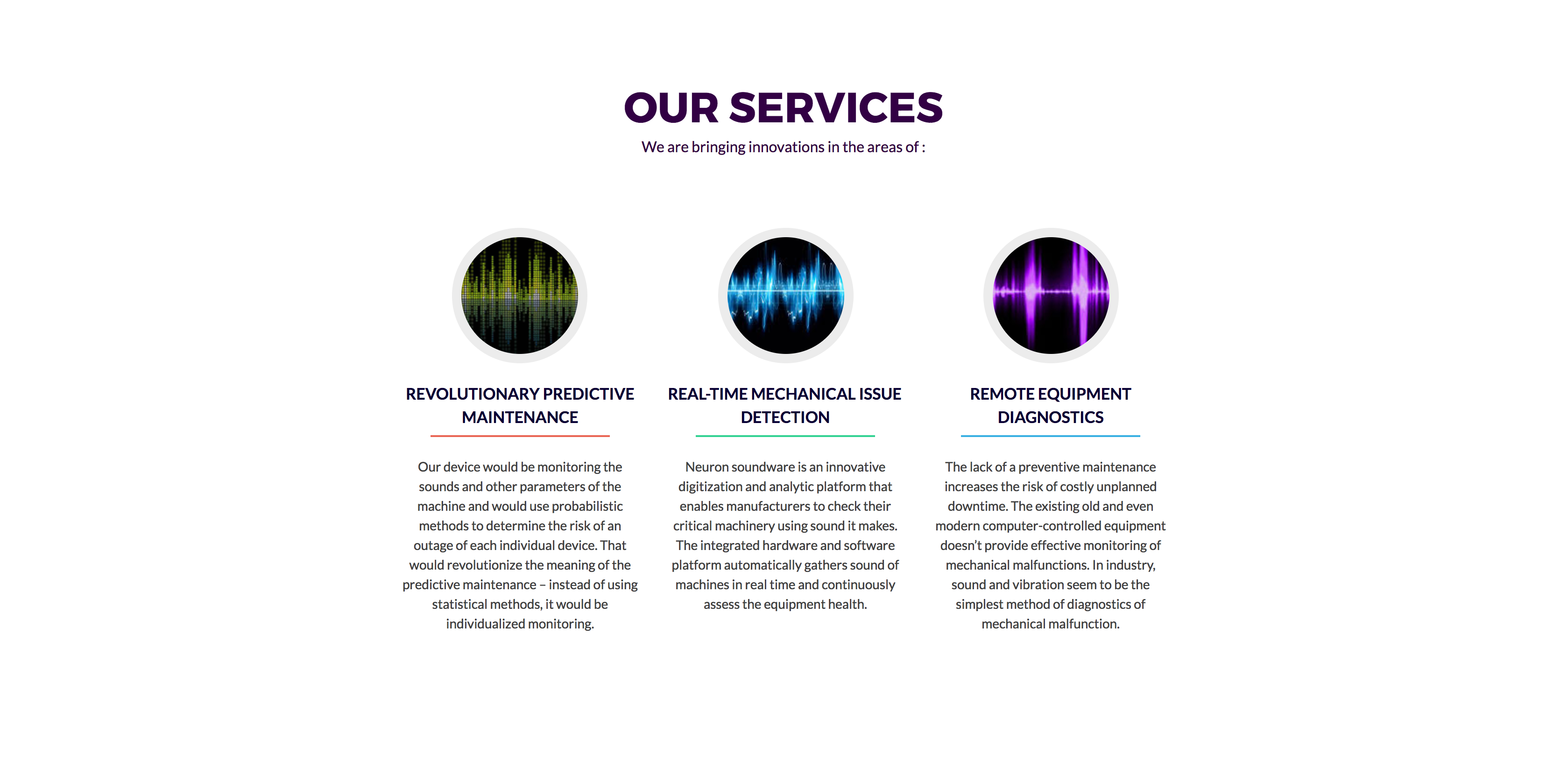
According to Konecny, the technology, based on “deep neural networks,” learns from the sounds machinery produces, and can detect patterns too faint or complex for a human to hear, diagnosing issues with machinery well before they become catastrophic. Konecny says of the technology: “Sound is a rich source of data, and also quite universal, which is why mechanics and engineers rely on it so much. But a human cannot listen to 100 airplane or diesel engines for 1000 hours each, and make sense of it all. A machine can do this, and when one engine fails, it can apply that learning to all it has already heard, thus greatly enhancing our ability to detect and prevent future problems.”
“When Neuron Soundware joined us for our 6th program [out of 8], their approach to understanding sound had never really been tried before,” commented Cedric Maloux, our CEO, “leveraging StartupYard’s mentor network, locally and abroad, they were able to very quickly prove that there was a huge need for this kind of technology.” The company notes that future applications for machine learning and sound reach beyond machine maintenance, to product testing, autonomous navigation, green energy solutions, and even security. “Sound is everywhere,” remarks Konecny, “and we’ve just started to see how we can use it to understand more of how everything works.”
About Neuron Soundware:
Neuron Soundware is a deep tech startup, exploring the use of self-teaching, constantly learning neural networks in a wide range of audio analysis and audio manipulation applications. Since 2016, Neuron Soundware has focused on technology to monitor and diagnose industrial equipment to predict failures and increase efficiency. They include Siemens and a number of other leading industrial and transportation equipment manufacturers among their clients.
About J&T Ventures:
J&T Ventures is a Venture Capital fund based in Prague. The fund invests up to €500 000 in technology firms at the seed stage in CEE region. Since 2014, J&T Ventures has been invested in 11 growing and promising innovative startups with the goal to contribute to their dynamic growth and value creation. The fund focuses mainly on B2B sector with a particular interest in FinTech, IT (Big Data Analytics), IoT/IoE & Smart City IoT and Retail.
You can now apply for StartupYard Batch #8.
- Robots
- Artificial Intelligence
- VR/AR
- IoT
- Cryptography
- Blockchain
StartupYard is a GAN Accelerator. What Does that Get You?
/in Financing, Startup Tools/by StartupYardYou probably know that StartupYard is the oldest and leading Seed Accelerator for technology startups in Central Europe. What you might not know is that StartupYard is also a member of the exclusive GAN: The Global Accelerator Network.
GAN: The Global Accelerator Network
GAN is an invitation-only network of the leading technology accelerators in the world, including TechStars (all campuses), NUMA, StartupBootCamp, and MuckerLab.
GAN is more than just a network: it offers a package of perks and free services to member accelerators and their startups, that vastly reduce the early-stage costs of starting up. In the past, our startups have used GAN perks to do everything from cloud hosting, to email management, and much more. If you can think of it, there is probably a GAN perk that covers it. And all those services, our startups get for free.
What StartupYard Members Get from Gan
$34M in Perks – In the last year, GAN startups received $34M in free or reduced cost services they needed to get off the ground successfully. But more than just free credits, partners like Sendgrid offer credits as well as guidance for any GAN company in setting up and establishing an impact email strategy
$400K invested – GAN Ventures, the investment arm of GAN, provides seed stage funding and has made investments in four GAN alumni companies so far this year.
20+ Corporate Partners – GAN founders have exclusive opportunities to connect with large enterprises for business development opportunities.
Access to global locations – No matter where your startup is based, if you need a place to work or take meetings, the GAN Exchange gives you access to GAN program offices around the world.
Mentorship from the best minds in the industry – Mentors are a key part of a startup founder’s success. GAN startups benefit from more than 13,000 mentors throughout the GAN community.
A community of entrepreneurs – No matter where you or your company are based, you’re surrounded by a community of more than 5,000 startups who have launched their business in a GAN accelerator.





